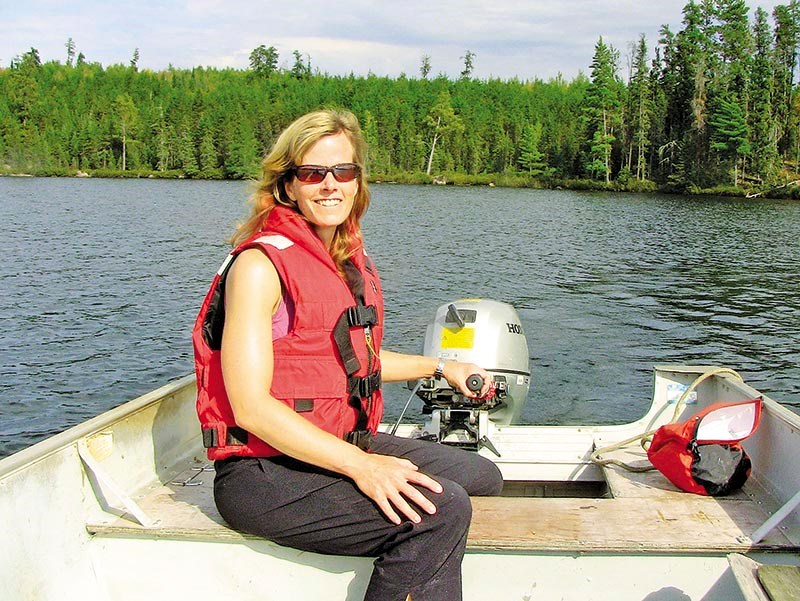Marco Vigliotti
As a child growing up in Sarnia, Karen Kidd developed an affinity for water that she credits with helping shape her distinguished academic career.
The stark contrast in her hometown of picturesque water and smoking petrochemical facilities familiarized the renowned scientist at a young age with what would become her life’s work – studying the impact of human development on aquatic ecosystems.
“Some of my interest in water and water quality definitely stems from growing up on Lake Huron. I spent a lot of my summers on the beach,” Kidd, an eco-toxicology expert and biology professor at the University of New Brunswick, told The Journal.
“My love of nature combined with my exposure to human activity, like oil refining and petrochemical industries … was really appealing when I went to do a university degree.”
As a child, Kidd became intimately familiar with the industrial presence with her father employed by Dow Canada – a major player then in Sarnia’s Chemical Valley.
After graduating from Northern Collegiate in 1987, she left to pursue an undergraduate degree in environmental toxicology at the University of Guelph.
She earned her PhD in environmental biology from the University of Alberta and worked as a research scientist for the federal government before moving to New Brunswick in 2004.
Today, many of her research papers have won international acclaim, including a highly publicized 2014 study of the impact on fish of heightened levels of estrogen.
Estrogen in birth control pills that end up in municipal sewage eventually enter waterways.
For her study, small amounts of estrogen were introduced into a lake at Ontario’s Experimental Lakes Area. The hormone sparked an alarming chain reaction that wiped out the fathead minnow – a crucial link in the waterway’s ecosystem.
The estrogen interfered with the ability to reproduce by causing male minnows to produce eggs, said Kidd, Canada Research Chair in chemical contamination of food webs and a science director at the Canadian Rivers Institute.
“When the fathead minnow – a really important prey species for the lake trout- declined so much, the lake trout started to decline,” she explained of a domino effect.
The study also allowed Kidd to participate in the sort of hands-on fieldwork she calls her favourite part of the job.
“I love to work in beautiful places, and I love to work on issues that are important to environmental health,” Kidd added.
